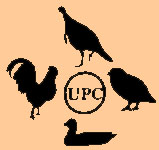| WESLEYAN UNIVERSITY IS FIRST AMERICAN UNIVERSITY TO
TAKE A STAND AGAINST THE CRUELTIES OF FACTORY EGG FARMING
Contact: Josh Bryant 585-739-5860 or jbryant@wesleyan.edu
Joel Bartlett 860-685-6016 or
jsbartlett@wesleyan.edu
Middletown, CT - On Sunday, April 27th, the Wesleyan Student Assembly
(WSA) passed a resolution demanding the elimination of eggs laid
in extremely cruel conditions from the campus grocery store, WEShop.
In doing so, the WSA became the first student representation group
at an American university to take a stand against so-called "factory
egg farming." Furthermore, the resolution recognized that animal
well-being is a legitimate factor in institutional decision-making.
ARAMARK, Wesleyan's food-service provider, has agreed to act in
accordance with the WSA's decision.
"By eliminating this source of suffering from WEShop Wesleyan
students have expressed their commitment to responsible consumption
and compassion," said Lori Gruen, Professor of Philosophy at
Wesleyan. "In a world in which there currently is so much suffering,
human and non-human, the students have not succumbed to apathy and
despair and have taken a bold step to minimize their role in causing
unnecessary suffering."
Factory egg farms are infamous for their cruel conditions, for both
hens and workers, and for the environmental threats they pose. Up
to ten hens are forced to live in a cage so small that one hen could
not spread her wings," said Matt Montesano, a member of Wesleyan's
Environmental Organizers' Network (EON). "Hens are in lifelong
pain because up to two-thirds of their beaks are cut off as chicks.
Hens in factory farms are periodically starved for up to three weeks
in a practice called force-molting, which attempts to shock hens'
bodies into another laying cycle."
In addition to the routine labor exploitation by the corporations,
workers at factory farms are exposed to many work-related hazards
such as excretory ammonia fumes from the nitrogen in decomposing
bird droppings. The large amount of solid waste produced by factory
farms is harmful to local ecosystems, as is the release of ammonia
gas.
"The European Union has banned the installation of battery
cages," said Liz Eisenberg, a member of EON, referring to the
long rows of stacked cages that hens are kept in, "but the
United States has not yet recognized that these conditions are deplorable."
"In passing this resolution, we have set a national precedent,
and hope that other universities and non-academic institutions will
follow," said Jesse Young of EON.
The resolution comes after an intensive campaign by EON to raise
awareness about factory egg farming. For more information on the
campaign, visit http://www.wesleyan.edu/wsa/warn/eon.
United Poultry Concerns is a nonprofit organization that promotes
the compassionate and respectful treatment of domestic fowl. http://www.upc-online.org
|
